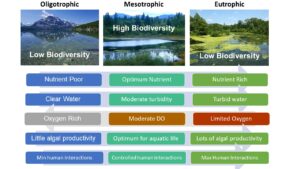
Academic research could not able to compete with research conducted in the industry. This is because most Industrial research is focused on the top-level domain, application-oriented, and outcome-based. However, academic research is more focused on fundamental research and publications oriented than industry research. At the same time, academia has more manpower than industries and can compete with industry research if academia follows the following 10 important strategies to transform academic research.
1. Relief from admin duties
The key challenge with academia is teachers’ changing role, which affects the research quality. The academic researchers are too much busy with admin duties including purchases, research funds arrangement, auditing the projects, teaching, and assessment. Most often, those who have admin duties in academia such as head, dean, and director are less productive in research. That is the reason why many academia could not able to produce high-quality research and its direct applications. That is why many teachers do not accept admin duties. If academia implements separate manpower to look after the above-listed admin duties then academia can easily compete with industry.
2. Interdisciplinary approach
Problems in society are most often complex and cannot be solved with research conducted in a single discipline. That is why multidisciplinary research is required on a single problem to solve it effectively and efficiently. However, the integration of multidisciplinary research is crucial to solving societal problems. Hence interdisciplinary research becomes crucial to developing technology, methods, or product for society. To enhance the applicability of research, academia should promote more interdisciplinary research and academic activities.
3. Sustainable needs of society
In addition to the existing society’s needs, research should be for the better future of the society considering intergenerational requirements. Industry research is often based on the future of the market and requirements of the society. However, academic research adds more knowledge to the scientific communities and is further utilized by the industry to develop products and technologies. Hence, it is very important to consider the inter-generational perspective in addition to fundamental research in academia to enhance the applicability of the research to compete with industry research.
4. Focus on the top-level research domain
Research in academia is very wide and in-depth. However, more focus should be on the top-level research domain to compete with the industry. That is why the industry is leading in the market in terms of research output and earnings from the products. The top-level research domain at present includes consumer-oriented, drug discovery, artificial intelligence, quantum computing, robotics, etc. The top 10 trending research areas in life sciences and their career opportunity could be helpful to the researchers working in the life science domain. Academia should include more trending research to compete with the industries and the requirements of society.
5. Publication-oriented research
The number of publications and patents are important criteria for the growth of academic researchers. Because of that, most academic research is for publications or patents. In place of harder problem-solving research, they focus on the easy-to-publish research domain. In addition, academic research is more focused on ‘just prove it to publish‘ than its application. To increase academic research outcomes, publication criteria in academia should be minimum for the future of research. Because publication-oriented research is the key difference between academics and industry. That is the reason why this strategy is in the top 10 important strategies to transform academic research.

6. Research Funding
The second key difference between industry and academia is the availability of research funds. Most of the time researchers in academia restrict their ideas due to a lack of funds. At the same time, they spent most of their time searching for funds. On the other hand, the industry has the funds to invest in the idea and future products. The research funding avenues should provide more funds to academia, especially for application-oriented research, and promote the ideas. Remember, academia has more potential than the industry, if funds are available then academia can produce better research output than the industry.
7. Spend more time on the expertise domain
Generally, academic researchers spend more time learning new subject domains to execute the same in their research projects. Because of that most of their valuable time is wasted which can be utilized in your expertise. However, in industry, researchers are assigned research work according to their expertise than focusing on new learning. For a new subject domain, new subject experts are recruited and their valuable contributions are incorporated into the research. Remember, you have limited time, you can’t do everything, let expert people do their jobs, they can complete them easily and be more productive. At the same time, you can be more productive and efficient in your subject domain.
8. Low salary in academia
Another reason behind low outcomes in academic research is the salary. As compared to industry research and development, academia has a lesser salary which ultimately affects the research outcomes. According to a survey, a researcher in the industry earns 30% more salary than in academia. In addition, the job satisfaction of researchers in the industry is higher than in academics. To compete with industry research outcomes, academia should provide comparable salaries to the researchers and enhance their job satisfaction.
9. Freedom to choose research
Academia has more freedom to choose the research project and it is good for the future of research. However, academia often misuses freedom and picks incorrect research topics considering personal interests. For the growth and development of the nation, it is very important to focus the research based on the requirements of the society. Hence it is very important to follow the correct guidelines to choose the topic of the research. If academia works on harder research problems they may face multiple issues in the beginning but in the end, they will be able to compete with the industry. Remember, academia has more manpower than industry.
10. Research for learning
Generally, research in academia is for learning purposes and picking up already-solved problems. That is the reason why they don’t follow up further on the same research problems. Because of that the productivity and outcomes of academic research are lesser than the industry even though manpower is higher in academia. Hence, it is important to take unsolved problems and perceive them further even after learning objectives are over. Remember, you may fail in challenging problems but your learning objective will be fulfilled. In fact, we can learn more from negative research results than from positive ones.
Conclusion
Based on the foregoing discussion, it is clear that academia has higher potential and manpower than industry. However, academia could not able to compete with industry. The reason could be the above-listed challenges of academia and there is an urgent need to transform academic research to compete with the industry. The above-listed 10 important strategies to transform academic research could be helpful to achieve the same.

